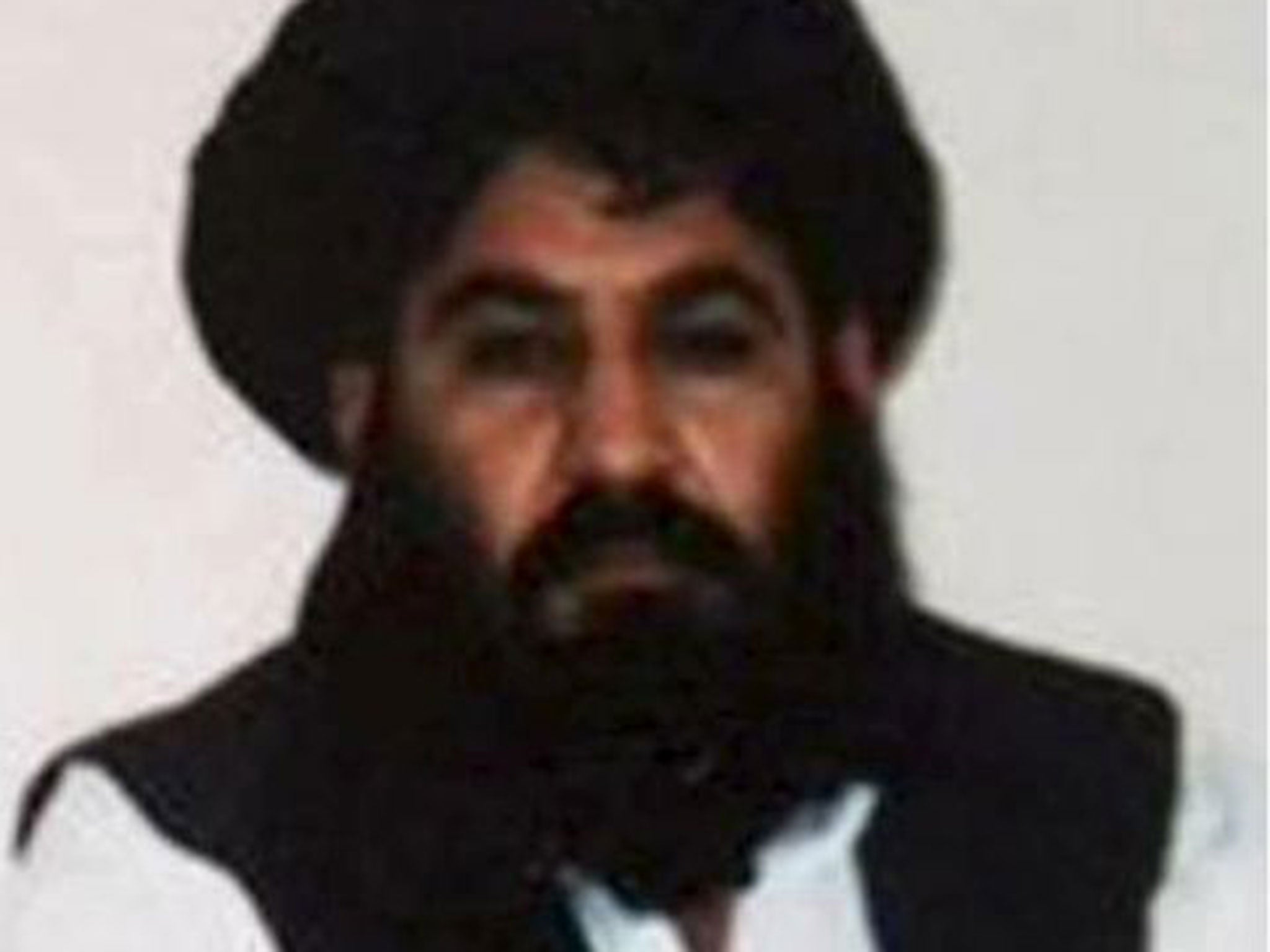Taliban leader Mullah Akhtar Mansour killed by US drone strike in Pakistan
The US' killing of the extremist leader on Pakistanti soil, close to the border with Afghanistan, was a 'violation of sovereignty', its officials have said

Your support helps us to tell the story
From reproductive rights to climate change to Big Tech, The Independent is on the ground when the story is developing. Whether it's investigating the financials of Elon Musk's pro-Trump PAC or producing our latest documentary, 'The A Word', which shines a light on the American women fighting for reproductive rights, we know how important it is to parse out the facts from the messaging.
At such a critical moment in US history, we need reporters on the ground. Your donation allows us to keep sending journalists to speak to both sides of the story.
The Independent is trusted by Americans across the entire political spectrum. And unlike many other quality news outlets, we choose not to lock Americans out of our reporting and analysis with paywalls. We believe quality journalism should be available to everyone, paid for by those who can afford it.
Your support makes all the difference.The US drone strike that killed the leader of the Taliban in Pakistan was a “violation of sovereignty”, the country's foreign ministry has said.
The Afghan spy agency confirmed today that Mullah Akhtar Mansour died in Saturday’s strike.
Mansour was targeted by the US while he was riding in a vehicle with another combatant in a remote area of Pakistan’s Baluchistan province, south-west of the town of Ahmad Wal, close to the border with Afghanistan.
Pakistan's Foreign Ministry said the strike violated its sovereignty as it was carried out on Pakistani soil.
The US has not yet confirmed the leader's death, but Secretary of State John Kerry said the strike had targeted Mansour, who has led the extremist group since July last year.
“Mansour posed a continuing, imminent threat” to US personnel and Afghans, he said.
“This action sends a clear message to the world that we will continue to stand with our Afghan partners as they work to build a more stable, united, secure and prosperous Afghanistan.
“Peace is what we want. Mansour was a threat to that effort and to bringing an end to the violence and suffering people of Afghanistan have endured for so many years now. He was also directly opposed to the peace negotiation and to the reconciliation process.”
The Taliban has not made any official statement about the death.
A battle for succession of the leadership may now ensue, deepening fractures that emerged in the insurgent movement after the death of its founder Mullah Mohammad Omar was confirmed last year, more than two years after he died.
US officials said Saturday’s mission was authorised by President Barack Obama and included multiple drones.
The Afghan government said it had been informed of the strike by Washington.
Abdullah Abdullah, chief executive of the Afghan government, said Mansour’s death would have a positive impact on attempts to bring peace to Afghanistan, where the Taliban has been waging an insurgency for 15 years.
Mansour was the “main figure preventing the Taliban joining the peace process,” he said.
“From the day he took over the Taliban following the death of Mullah Omar, he intensified violence against ordinary citizens, especially in Afghanistan.”
In December, Mansour was reportedly wounded and possibly killed in a shoot-out at the house of an insurgent leader near Quetta in Pakistan. The Taliban eventually released an audio recording, purportedly from Mansour, to dispel the reports.
A US intelligence analyst said Mansour had been in a power struggle with Mullah Mohammad Rasoul, whose deputy, Mullah Dadullah, was killed late last year in what officials believe was a fight with Mansour’s more hard-line faction.
But the official said it would be wrong to believe that a shake-up within the group might diminish the Taliban's strength.
“The Taliban have made considerable progress in Helmand [province] and elsewhere so it's hard to see much incentive for them to start compromising now, with the fighting just heating up again,” he said.
The new US commander in Afghanistan is reviewing its strategy, including whether broader powers are needed to target insurgents and whether to proceed with plans to reduce the number of US forces.
Additional reporting by Reuters and AP
Join our commenting forum
Join thought-provoking conversations, follow other Independent readers and see their replies
Comments